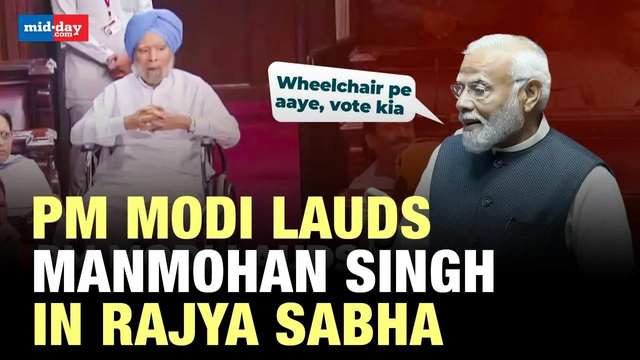
In a move that sent shockwaves through India's political landscape, Prime Minister Narendra Modi recently offered a surprising tribute to his predecessor, Manmohan Singh. During a farewell speech in the Rajya Sabha, Modi lauded Singh's contributions to the nation, acknowledging his dedication and commitment to democracy, despite their stark ideological differences. This unprecedented gesture has sparked widespread debate and introspection, raising questions about the nature of political discourse and the possibility of unity in a deeply divided India.
For context, Modi and Singh represent opposing ends of the political spectrum. Modi belongs to the right-wing Bharatiya Janata Party (BJP), known for its nationalist and Hindu-centric ideology. Singh, on the other hand, hails from the center-left Congress party, traditionally championing secularism and social welfare policies. Their tenures as Prime Ministers witnessed sharp contrasts in policy and rhetoric, making this public acknowledgment all the more remarkable.
Modi's praise focused on Singh's personal attributes. He commended his work ethic, citing an instance where Singh came to vote in a wheelchair despite knowing the outcome. He recognized Singh's dedication to democracy, stating that "ideological differences are short-lived, but...he will be remembered for his contributions." This emphasis on personal qualities over political differences struck a chord with many, resonating with the public's growing desire for civility and cooperation in politics.
However, the gesture also provoked mixed reactions. While some lauded it as a much-needed step towards bridging the political divide, others saw it as politically motivated, aimed at improving Modi's image or softening the BJP's stance. Skeptics pointed out that the praise coincided with the release of a government white paper criticizing the UPA government led by Singh, highlighting the potential for strategic maneuvering.
Despite the mixed reactions, the incident raises crucial questions about the future of Indian democracy. Can political discourse move beyond divisive rhetoric and personal attacks? Is there room for acknowledging contributions across the ideological spectrum?
This public exchange offers a glimmer of hope. It demonstrates that recognizing individual merit and appreciating contributions, even from ideological opponents, is possible. This gesture, if genuine and followed by concrete actions, could pave the way for a more respectful and constructive political environment.
However, genuine change requires a sustained effort from all stakeholders. Political parties and leaders must prioritize constructive dialogue over inflammatory rhetoric. Media outlets need to present balanced narratives and foster informed discussions. Finally, the public has a crucial role in demanding and actively participating in civil political discourse.
In conclusion, PM Modi's praise for Manmohan Singh, while surprising and open to interpretation, offers a potential turning point in Indian politics. Whether it translates into sustained change remains to be seen. However, it compels us to question the status quo and strive for a more respectful and unified political landscape. It is a reminder that acknowledging the contributions of others, even across ideological divides, is a necessary step towards building a stronger, more inclusive India.